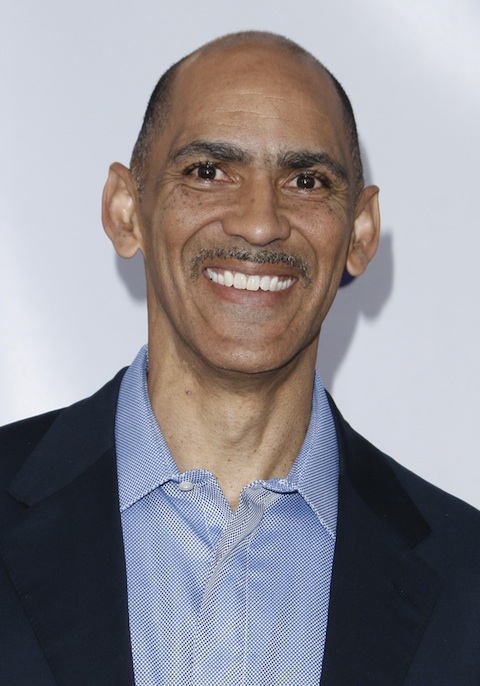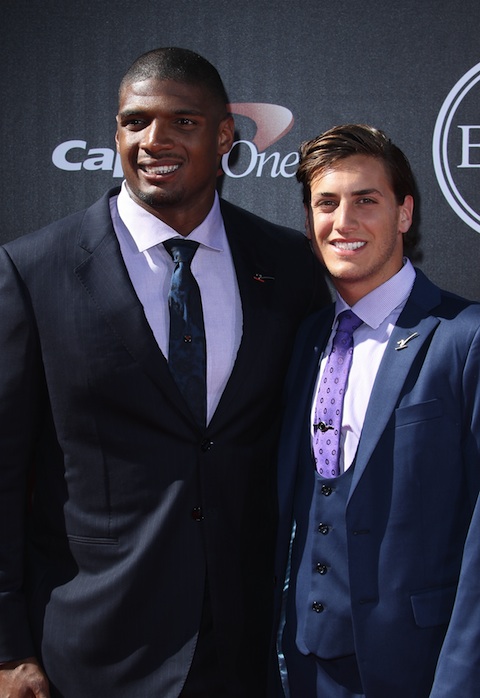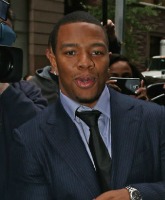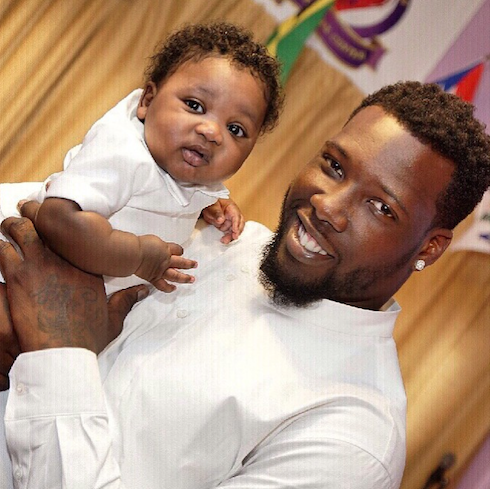Former NFL coach Tony Dungy responds to criticism of Michael Sam comments
In twelve seasons as a head coach, Tony Dungy suffered a losing record only once.
Yesterday, former Tampa Bay Buccaneers and Indianapolis Colts head coach Tony Dungy set off a firestorm by making comments that insinuated he had a problem with openly gay player Michael Sam’s sexuality.
The comments were part of a Tampa Bay Tribune story about the NFL trying to hold players to a more professional standard. Last year, one of the biggest stories involving the league was the bullying scandal that led to Miami Dolphins’ offensive lineman Johnathan Martin leaving the team.
In that story, Dungy said he would not have drafted Sam because he felt the media attention Sam received would be a distraction. He also said he thought “things would happen” to Sam.
Dungy has responded to the criticism of his comments with a long and measured statement, reprinted in full below:
On Monday afternoon while on vacation with my family, I was quite surprised to read excerpts from an interview I gave several weeks ago related to this year’s NFL Draft, and I feel compelled to clarify those remarks.
I was asked whether I would have drafted Michael Sam and I answered that would not have drafted him. I gave my honest answer, which is that I felt drafting him would bring much distraction to the team. At the time of my interview, the Oprah Winfrey reality show that was going to chronicle Michael’s first season had been announced.
I was not asked whether or not Michael Sam deserves an opportunity to play in the NFL. He absolutely does.
I was not asked whether his sexual orientation should play a part in the evaluation process. It should not.
I was not asked whether I would have a problem having Michael Sam on my team. I would not.
I have been asked all of those questions several times in the last three months and have always answered them the same way—by saying that playing in the NFL is, and should be, about merit.
The best players make the team, and everyone should get the opportunity to prove whether they’re good enough to play. That’s my opinion as a coach. But those were not the questions I was asked.
What I was asked about was my philosophy of drafting, a philosophy that was developed over the years, which was to minimize distractions for my teams.
I do not believe Michael’s sexual orientation will be a distraction to his teammates or his organization.
I do, however, believe that the media attention that comes with it will be a distraction. Unfortunately we are all seeing this play out now, and I feel badly that my remarks played a role in the distraction.
I wish Michael Sam nothing but the best in his quest to become a star in the NFL and I am confident he will get the opportunity to show what he can do on the field
My sincere hope is that we will be able to focus on his play and not his sexual orientation.
Sam with boyfriend Vito Cammisano.
While it doesn’t clarify what Dungy meant by “things will happen,” the statement should put an end to most of the criticism of him. Dungy was among the most-respected coaches in the league during his tenure there, and remains a well-regarded figure.
There is a disconnect, though, between what Dungy calls “the evaluation process” of Sam as a player (from which sexual orientation should be excluded), and the media attention that Sam receives as a result of that orientation.
Simply put: whether he has an Oprah-produced reality show or not, it’s impossible to evaluate Sam in a vacuum. The reality show is just another extension of the attention that comes with being the first openly gay player in NFL history.
Any team willing to give Sam a try–or to try any player whose presence comes with extra media attention, regardless of the reason for it–has to accept everything that comes with him.
Nor is it entirely fair to hold Sam accountable for the attention. He is, by most accounts, a down-to-earth guy, a hard worker, a person who doesn’t go out of his way to find the limelight. (Which does mean it’s curious that he’s decided to sign on with Oprah’s production company and star in a television show about himself.)
The very notion of “things” happening to Sam in the locker room, then, suggests that what Dungy’s talking about is an ideal situation. Should Sam’s orientation matter more than his performance? Of course not: not to coaches, not to players, and not to anyone watching at home on Sunday afternoons.
But, until more teams and more individuals are willing to accept Sam, and other gay players in other sports, the ugly specter of “things” will continue to be justification for turning away, instead of moving toward.






